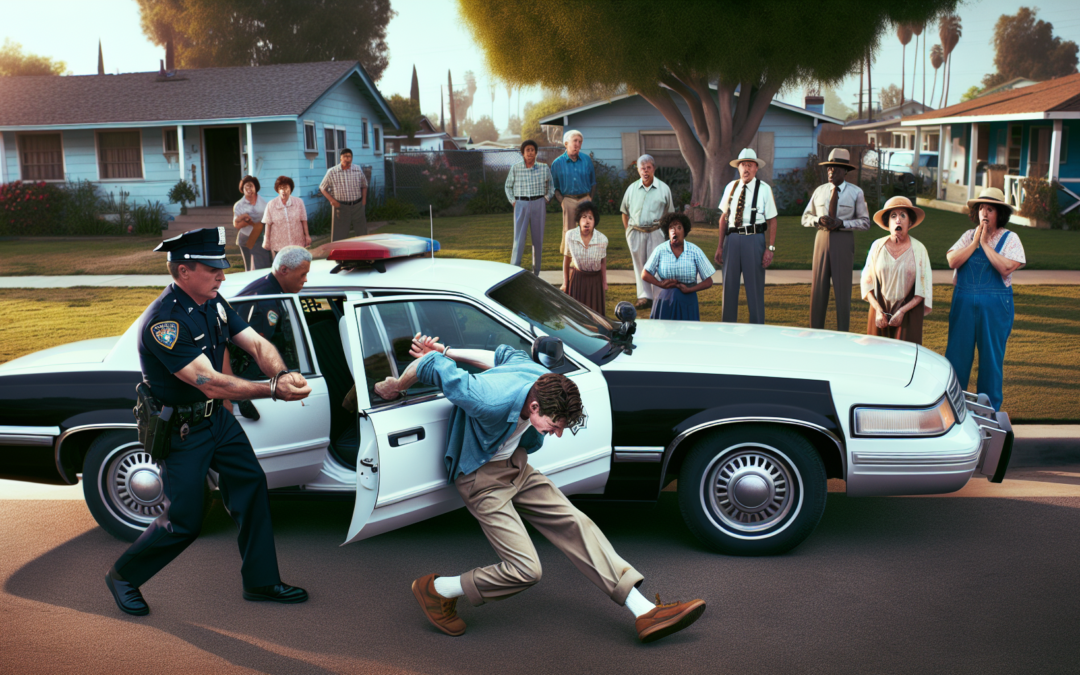The Unspoken Challenges Faced by Law Enforcement in an Era of ‘Auditing’
Policing in contemporary America has always been layered with complexities. Our officers are not merely guardians of the law; they are pillars upon which society is balanced, tasked with mediating a blend of justice, service, and protection, all the while navigating the volatile winds of public perception. In recent times, however, an unsettling trend has emerged—one that poses a profound and disruptive challenge to their mission: the rise of individuals known as “auditors” who wield cameras as instruments of contention.
What Are ‘Auditors’?
At its core, auditing was envisaged as a civic function to ensure transparency and accountability. Nevertheless, this noble intent has devolved in many instances into outright provocation under the guise of civil rights advocacy. A swarm of disruptors deploy to provoke officers, stoking incendiary responses simply to gain notoriety or to accumulate views on platforms like YouTube. The clashes that ensue are not incidental but are intricately manufactured scenarios that often ignore context or extenuating circumstances in pursuit of “gotcha” moments.
The Detrimental Impact on Law Enforcement
Thus ensues the silent siege, where officers, under the constant glare of suspicion and a sea of lenses, navigate their duties with dreaded anticipation. In every routine call, traffic stop, or even casual conversation, they remain acutely aware that any gesture could be misinterpreted to feed a skewed narrative. This leads to policing with reluctance and hesitation—a brewing cocktail of frustration and stress. Imagine the burden of permanence badgered into every decision, each step second-guessed for how it might appear online to armchair critics, devoid of situational complexity.
Below is more on how these challenges manifest:
1. Erosion of Trust and Morale
When officers find themselves relentlessly critiqued and ensnared on digital platforms, it erodes their morale. The essence of camaraderie and the spirits bolstered by community respect become endangered under the weight of skepticism cultivated by irresponsible auditing. Critics, distant from the thick of action, seldom have to reconcile their judgments with the consequence of diminished local confidence in law enforcement. As everyday honoraries become mistrusted targets, fewer choose to walk this honorable duty-driven path—endangering not just recruitment, but the essence of department vitality.
2. Escalating the Atmosphere of Threat
The surge in recording-linked provocations correlates with an atmosphere where officers must be hyper-vigilant against belligerence aimed not at genuine disagreement but staged hostility. They feel targeted, and the untenable balancing act between restraint for the camera and assertiveness for control cultivates a perilous work environment. Consequently, high-stress confrontations make each call potentially career or even life-critical, intensifying the toll on mental health and daily operational readiness of officers entrenched in these hostile environments.
3. Distracting from Community Service
The fixation on manipulated content underscores a dangerous distraction from responding to genuine service needs. Well-intentioned calls could be delayed as unwarranted diversions drain resources. Where stark confrontations employ media evidence as weapons against constructive policing, society suffers by losing the core value of quick, actionable aid during true calamities. Raucous spectacles should not define officer engagement or redirect attention from pressing societal challenges—the needs of the homeless, the addicted, or domestic urgency now sidelined for digital disputations.
Spreading Awareness and Understanding
Through the noise, rational voices merit amplification, urging discernment and balanced dialogue. Education around the life-altering implications that exploited contexts have for our officers is elemental in reclaiming credible perspectives on street-level policing interactions. Squashing preconceived acrimony requires unmediated glimpses into life patrolling the precincts and precincts cultivating communal alliances—not merely branding but empathizing with humanity beyond the blue.
A proactive, informed public is part of the solution alongside law enforcement—weary but unyielding, duty-bound to security and elevation of communal bonds amid heightened scrutiny. Civil society owes an allegiance to behalf honesty and deconstruction of staged conflict under false premises.
To stay informed and explore what these interactions entail beyond filtered snippets, follow The John Ligato Show on YouTube and dive into the episode dissecting this phenomenon here. Join the conversation and lend your support to our officers navigating volatile terrains by following along through Facebook.
Charting a Sensible Path Forward
Charting a course from contention back to connection involves rekindling lost bonds between police and populace. Emerging audacity breeds from streets colored by misunderstanding and skewed engagement. Initiatives that mirror mutual collaboration—community policing bodies, ride-alongs, public debriefings—cement care the foundations anew. Policing is intrinsic to liberty safeguarded through common valor, exercised not merely under physical precision, but through empathetic expertise imbued at each officer’s core engagements.
In a richly complex legal and social environment, empathy begets action. Now, more than ever, is the time to champion nuanced understanding and unwavering support for those steadfastly striving to honor their oaths and cherish their roles despite turbulent tides rocking them perpetually on-duty. Their stories matter; indeed, they are critical in the conscience they carry for a stable future rising from today’s bewildering landscape for law and order.

Recent Comments